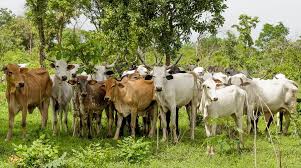The Federal Government has unveiled ambitious plans to transform Nigeria’s livestock industry into a major economic powerhouse, with projections indicating potential annual revenues of N150 billion from the sector.
During a stakeholder engagement forum held yesterday in Abuja, the Minister of Agriculture and Rural Development highlighted the untapped potential of Nigeria’s livestock resources, which include approximately 20 million cattle, 43 million sheep, 76 million goats, and over 180 million poultry birds across the country.
“Our vision is to revolutionize the livestock value chain from a predominantly traditional system to a commercially viable industry that can significantly contribute to our GDP and create thousands of jobs for our teeming youth population,” the Minister stated.
The comprehensive development strategy focuses on modernizing production systems, improving animal health services, establishing processing facilities, and creating structured market channels for livestock products including meat, milk, hides, and skin.
Industry expert Dr. Aliyu Mohammed, who participated in the forum, said that the projected N150 billion annual income is achievable if proper investments are made in addressing current challenges.
“Nigeria currently spends billions on importing dairy products alone. By strengthening local production capacity and implementing the National Livestock Transformation Plan effectively, we can not only save foreign exchange but also generate substantial revenue,” Dr. Mohammed explained.
The plan includes the establishment of grazing reserves and ranches across strategic locations to mitigate farmer-herder conflicts while boosting productivity through improved breeding technologies and better animal nutrition.
Several state governments have already indicated interest in partnering with federal authorities to implement pilot projects, with international development partners pledging technical and financial support.
“This initiative represents a paradigm shift in how we approach livestock development in Nigeria,” said Alhaji Ibrahim Danladi, President of the Nigerian Livestock Producers Association. “Beyond the economic benefits, it will enhance food security and improve the livelihoods of millions of Nigerians engaged in various aspects of animal husbandry.”
The Minister emphasized that successful implementation would require collaboration between government agencies, private sector players, and local communities, with special attention to environmental sustainability and climate-smart practices.
